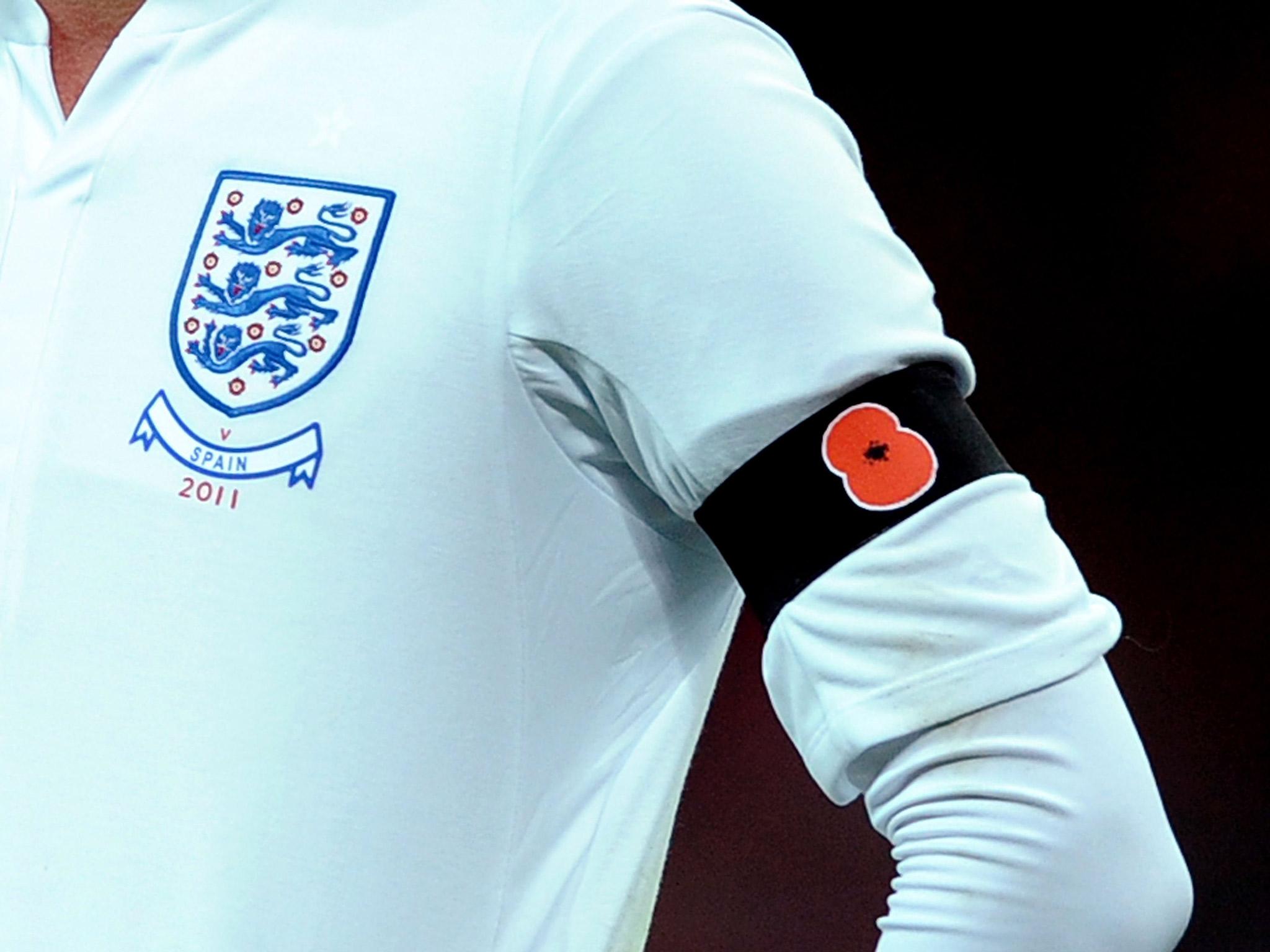The British Poppy represents a freedom so many died for – which means freedom not to wear it
FA chairman Greg Clarke insists that ‘we’ll be wearing poppies at Wembley’. Had he really asked the players? Poppy fascism damns those who exercise the free choice not to wear the symbol: the free choice for which our forebears laid down their lives

The libertarian view on the poppy controversy is the right view. We do not need to take rules and diktats from sport’s governors – least of all a deeply damaged organisation like Fifa – on whether the British poppy or the French cornflower or the Syrian eagle or a pro-Gaza wristband is worn on the field of play. My form of remembrance, your form of remembrance: we can respect each other, like civilised people do.
But just as fundamental to libertarianism is the notion that, I can respectfully make my case, you can make yours and that we can argue and disagree without recourse to a sense of outrage and personal offence: that very outrage which Britain has conveyed to the world this week, creating a very unflattering image indeed.

The Fifa view on this issue may not be popular to many within these shores but it is not an invalid or an outrageous one. Fifa represents 211 nations and a fair number of them have reason to find the poppy offensive or nationalistic. Those Iraqis, perhaps, who have lost parents, siblings, or children who have died since the Allied invasion of 2003. The documented civilian deaths from violence in that conflict is 186,069, according to the iraqbodycount.org website.
There is no vast amount of sympathy for the English Football Association’s indignation within the broader world of football. Fifa’s Senegalese secretary general Fatma Samba Diouf Samoura spoke quietly on Thursday and it was hard not to feel she had a case. “Britain is not the only country that has been suffering as a result of war,” she said. “Syria is an example. My own [African] continent has been torn by war for years. The only question is ‘why are we doing exceptions for just one country and not the rest of the world’.”
Theresa May did not speak quietly on the topic in the House of Commons, a few hours earlier. She was cringe-inducing, hollering out that post-colonial view of the world in which the British know best and won’t be taking instructions from anyone. “Utterly outrageous… a clear message is going from this house…” May declared, oozing post-Brexit nationalism. It was a political tap-in for her because everyone loves some feel-good Fifa-kicking and, yes, she certainly scored. The rewards of playing to the tabloid gallery were there in black and white, splashed across the front page of Thursday’s Daily Mail in 120-point type: "Poppy War".
It’s hard to avoid the suspicion that FA chairman Greg Clarke had the tabs in mind, too, with his bellicose insistence on ITV that “we’ll be wearing poppies at Wembley”. Had he really asked the players, one by one? A more intelligent way of challenging Fifa’s Law 4, paragraph 4 might have been: "We want to give players the choice to wear poppies at Wembley".
This saga is a product of an age when being seen to be remembering, grieving, celebrating has become an obsession and social media is the amplifier. Examine images of the last Remembrance Day period when England played Scotland – the European Championship qualifiers of 13 and 17 November 1999. You will not see a single player displaying a poppy on the field of play. Remembrance was then something subtle; part of a private domain which now barely seems to exist.
The most dismal consequence of this indulgent absorption with self-image, of course, is the advent of the poppy fascism, damning those who exercise the free choice not to wear the symbol: the free choice for which our forebears laid down their lives. It isn’t a phenomenon unique to us. The Bangkok Post last week reported the public condemnation of those who had incrementally erred from the practice of wearing black in the aftermath of the death of King Bhumibol Adulyadej. There was a social media rinsing for one black-clad celebrity who, while distributing free food at the Sanam Luang central square, was seen wearing bright red nail polish.
So dull and empty is this hype that when a serving army officer called up to express his views on Radio Five’s excellent Phil Williams programme late on Thursday, it was a source of unfettered joy. Football players should be free to wear the poppy, he said, yet others may see it differently – he understood and respected that. So rather than scream indignation, might the FA not accept this judgment and take to the higher ground? They could dress Wembley stadium in symbols of remembrance when England play Scotland next Friday and donate all their earnings from the match to the Royal British Legion. Oh yes, what a gesture that would be. There is no chance. Britain would rather go to war.
Join our commenting forum
Join thought-provoking conversations, follow other Independent readers and see their replies
Comments
Bookmark popover
Removed from bookmarks